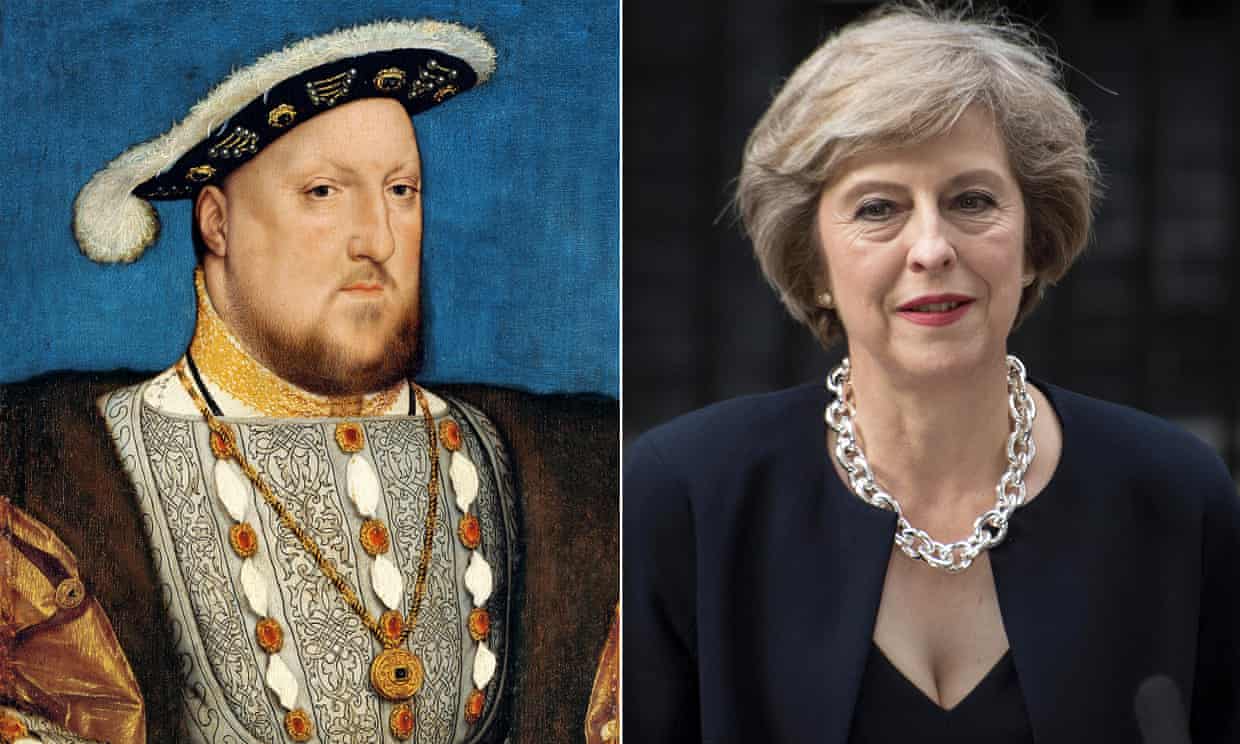As part of his attempt to bring New Year joy to us all, Jeremy Corbyn has done an interview with the Guardian. In the interview, he told Theresa May that "You're not Henry VIII."
Beyond the blindingly obvious, that she clearly isn't, the idea that Corbyn was pushing is that May is acting like Henry VIII did in the 1530s. Both broke with European political structures, to the utter horror of many within the country. And both used their enormous personal powers, in the form of the royal prerogative, to enact this change.
Corbyn is using the example as a dig at May's refusal to put any Brexit deal before Parliament. May believes that she is covered under the royal prerogative, the powers once wielded by the king, but now transferred to the Prime Minister. This includes most foreign affairs stuff, such as signing treaties, and declaring war. Corbyn is conjuring up the spectre of Henry VIII to claim that May is misusing these powers.
In the mad dash to get in a Tudor analogy, no one seems to have stopped and checked the historicity of this.
The English Reformation is a good analogy for Brexit, as hinted at above. It was also as immensely complex as Brexit will prove to be. When he decided to go it alone, Henry was trying to unpick a thousand years of history. The English Church had been established in the late 500s; the allegiance of the English bishops to Rome predated the creation of a single English state by several centuries. It wasn't as simple as just giving out some orders and making it so.
So Henry and his government went down a legal path. In the 1530s, a series of laws were passed by Parliament to legally separate the Church in England from communion with the Catholic Church. These were:
1532- Ecclesiastical Appeals Act- Made it illegal for church appeals to be made to the Pope. They were now heard by the Archbishops of Canterbury and York.
1532- Submission of the Clergy- The English bishops were forced to accept royal control over their decision making processes.
1533- Concerning Ecclesiastical Appointments and Absolute Restraint of Annates Act- Transferred the power to appoint bishops from the Pope to the king, and stopped the payment of money from the bishops to the Pope.
1533- Act Concerning Peter's Pence- Ended the payment of taxes from England to Rome.
1534- Act of Supremacy- Made the English monarch the Supreme Head of the Church in England.
1534- Treason Act- Made it an offence to deny that the king was Supreme Head of the Church.
1536- See of Rome Act- Made it treasonable to defend the authority of the Pope, and made all new priests and university students swear an oath acknowledging the king as Supreme Head of the Church.
Now, I know that these laws don't exactly have the snappiest titles (personal favourite is the long one in 1533), and contain some weird provisions (I'd love to have seen them making university students swear allegiance). There is also a huge argument about the role of Parliament in the early modern period, and whether they really had the power to stop Henry.
But the point still stands, that Henry VIII believed that the only way to achieve his break from Rome was by going down a legal route, using Parliament to achieve it.
In this respect, Theresa May isn't acting like Henry VIII at all. At least Henry went through Parliament, however much the process was simply nodding through what the king wanted.
A far better line of attack for Corbyn would have been to say that Theresa May is even worse than Henry VIII. But it's a bit late for that now...

No comments:
Post a Comment